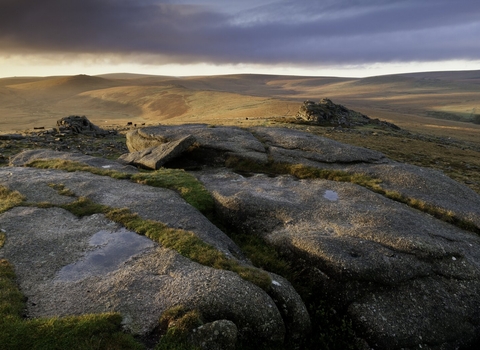Devon Wildlife Trust works with farmers, communities, and other partners to protect and restore nature and to build the resilience of farmed landscapes in the face of climate change. We deliver a range of cutting-edge initiatives that create, restore, and reconnect threatened and fragmented habitats and the wildlife that depends upon them and which tackle agricultural pollution, protect our soils, improve water quality, reduce flood risk and increase carbon storage. The Trust has big ambitions for nature-based solutions, a strategic area of our work which is focused on landscape scale nature restoration and on harnessing the power of nature to tackle some of our biggest environmental challenges.
Key strategic goals for the Trust are to see wildlife in recovery on at least a third of Devon's landscape and to harness the power of nature to tackle some of our biggest challenges such as climate change through natural solutions. An example of harnessing the power of nature to tackle challenges is:
Caen Wetlands
The Caen Wetlands project aims to restore a large wetland landscape in Northern Devon which will help alleviate local flood risk, offer eco-tourism opportunities, create new habitat for wildlife and capture huge amounts of climate-changing carbon. Devon Wildlife Trust acquired Horsey Island in 2019 thanks to a generous donation from local resident. Horsey Island’s 80 hectares of coastal habitats sit within a farmed landscape, surrounded both by the internationally renowned Braunton Burrows and grazing land. Devon Wildlife Trust, with funding from the Esmée Fairbairn Foundation, Defra and the Environment Agency, is carrying out feasibility work and investigating opportunities for working with surrounding landowners to respond to the impacts of rising sea levels and – with advice from Triodos Bank – explore the potential of new ways of funding ‘green’ initiatives.

